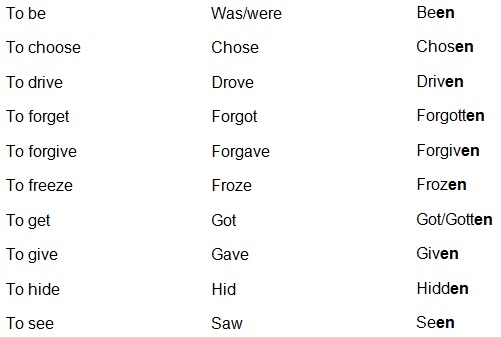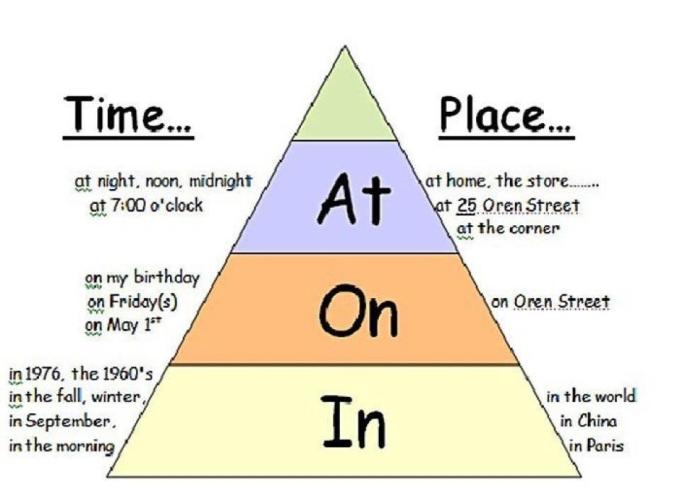This post is dedicated to all that are learning English and are having problems memorizing the irregular verbs. Apparently it does look a little strange, and it seems there’s no pattern we can follow to make sense. Here is my chance, there is a way you can study the verbs and learn their idea. I’ll present you some lists to apply on your daily basis to study the irregular verbs and stop being terrified at them! I’ll also show you something a little more difficult, the phonetic symbols. Although it is going to look weird it is a great chance for you to go deeper into studying and get better at English pronunciation. Studies have proved that our brain works better when it notices patters, where groups can be formed. I’ll help your brain find these groups. Let’s go!
1. First, let me start with my favorite group, the first group I recognized.

Do you see any similarity? Anything at all? No? Ok, I’ll tell you then. All verbs listed on the second and third column (Simple Past and Past Participle) finish with the consonants –ght. There is also a variation in the vowels, sometimes –au and most of the times –ou. This leads us finally to –aught or –ought. Cool, right?
The question now is how to pronounce it? Well, as I said, the phonetic symbols work very well for situations like that and in this case the pronunciation for all is the same. The symbol for this pronunciation is ‘ɑː’.
2. Moving to the next which is very similar to the list above. Take note, the structure is going to be the same. The second column, the Simple Past column, has the –a vowel and the third column, Past Participle, has the –u vowel. Another thing we can notice is that the sound of the second column’s verbs in terms of vowels is the same and the phonetic symbol is ‘æ’. For the third column, it’s the same idea. All vowels are going to be pronounced equally in all the verbs and the phonetic symbol is ‘ʌ’.

3. Now, let me mention the verbs that are a mixture of a verb + another word. Examples: Become, Forget, Understand. These verbs are a made of: come, get and stand. Before showing you the list I’ll tell you that the previous ones will follow the core ones. After considering that, what do we have?

Based on this idea we can understand that other verbs will also follow this rule. Examples: to overcome, to overlook, to overrun, to behold, to forgive, etc.
4. Very well, so far we have 26 irregular verbs mentioned and in the item 3 there are much more that can be explored. This is probably the largest group there is to help English language students recognize and work faster with irregular verbs. I’ll be honest and tell you that it’s not as perfect as the other ones and the similarity can be considered weak, however I myself rather see this as a form to organize the verbs and use our logical thinking to improve our reading, speaking, listening and mostly writing. The following group has merely an ending as -en in the third group (Past Participle).

I must remind you, there are far more verbs that could be included in this list. Due to the actual length of the post I won’t put anymore, however pay attention to the irregular verb list and you’ll see the others. In this case, the –en ending will sound for SOME verbs, not all, the same and the phonetic symbol for that is ‘ə’, known as ‘schwa sound’.
5. To finish this post I’ll gather the last but not less important form to recognize identical structures in the irregular verbs list. The ending now is –t.

To finish I’d like to make a statement, the pronunciation in the USA is different than the British and even for the American pronunciation sometimes there are two forms to pronounce the same word, so what you must do is get to know deeper all the possible forms and choose yours, but be aware there are others!
Hope you liked it! Please, give the pleasure of your opinion and share.







